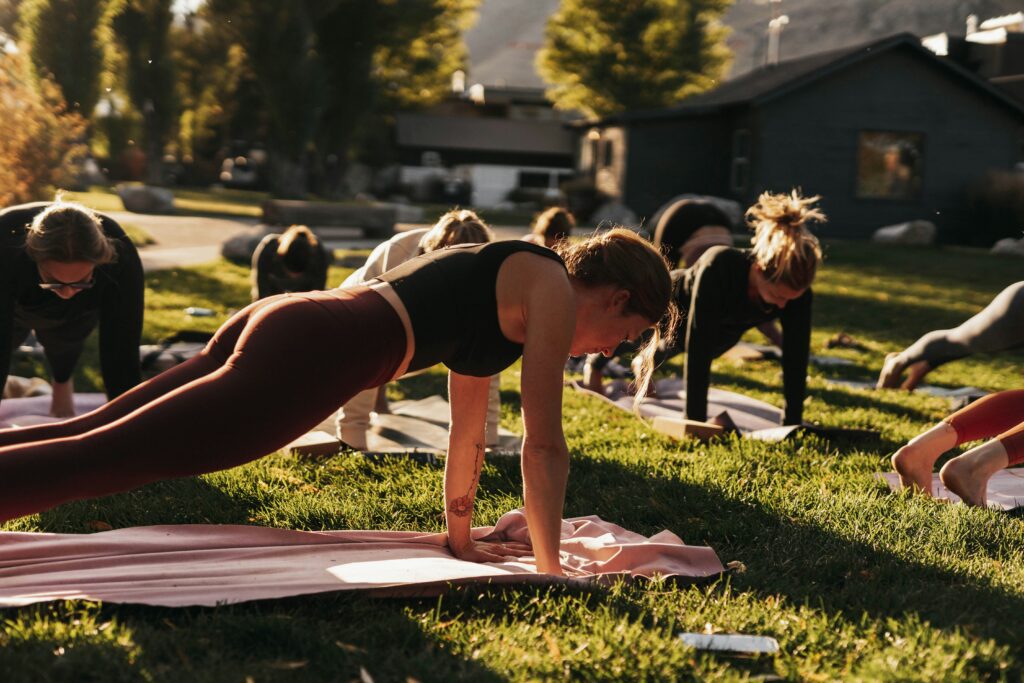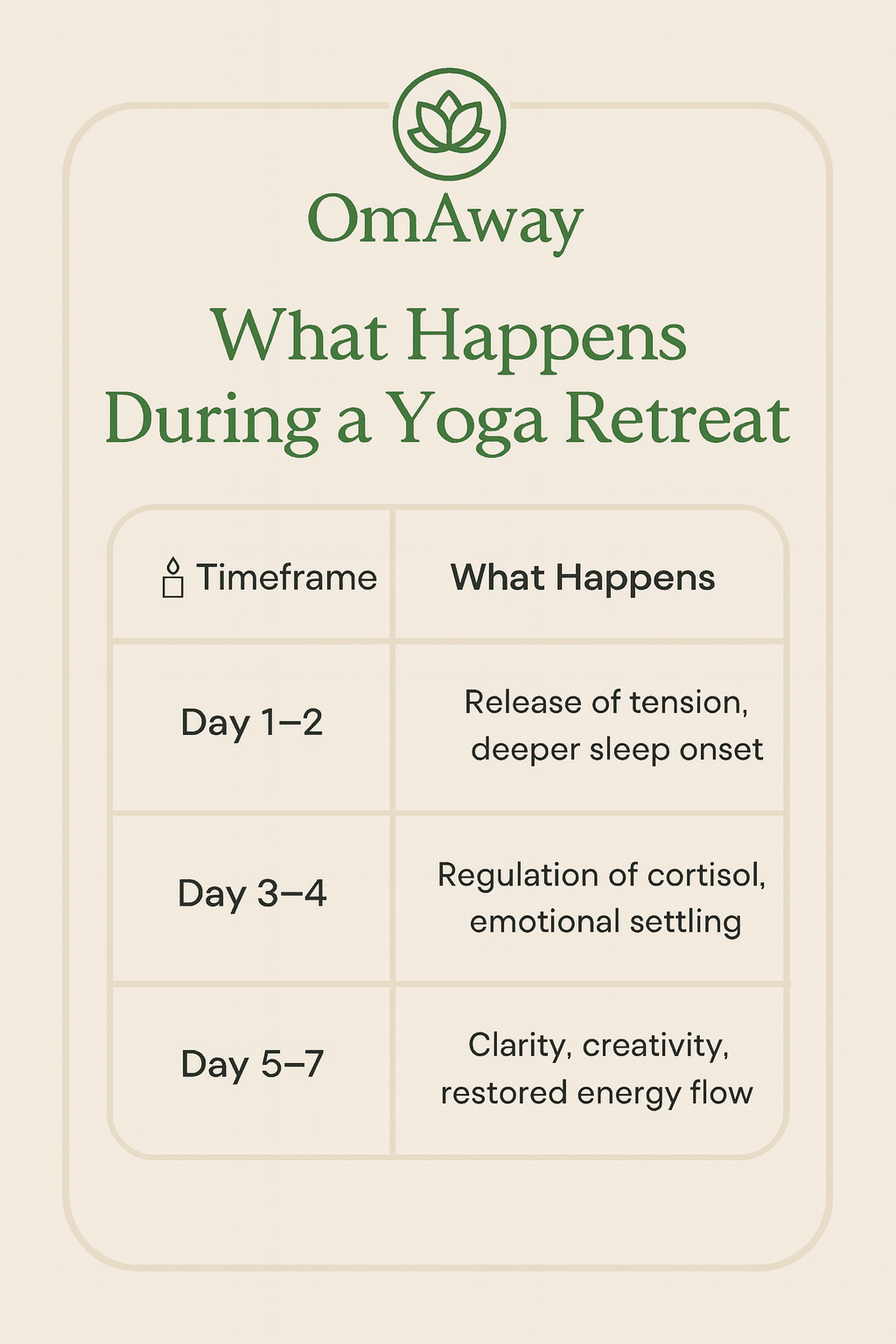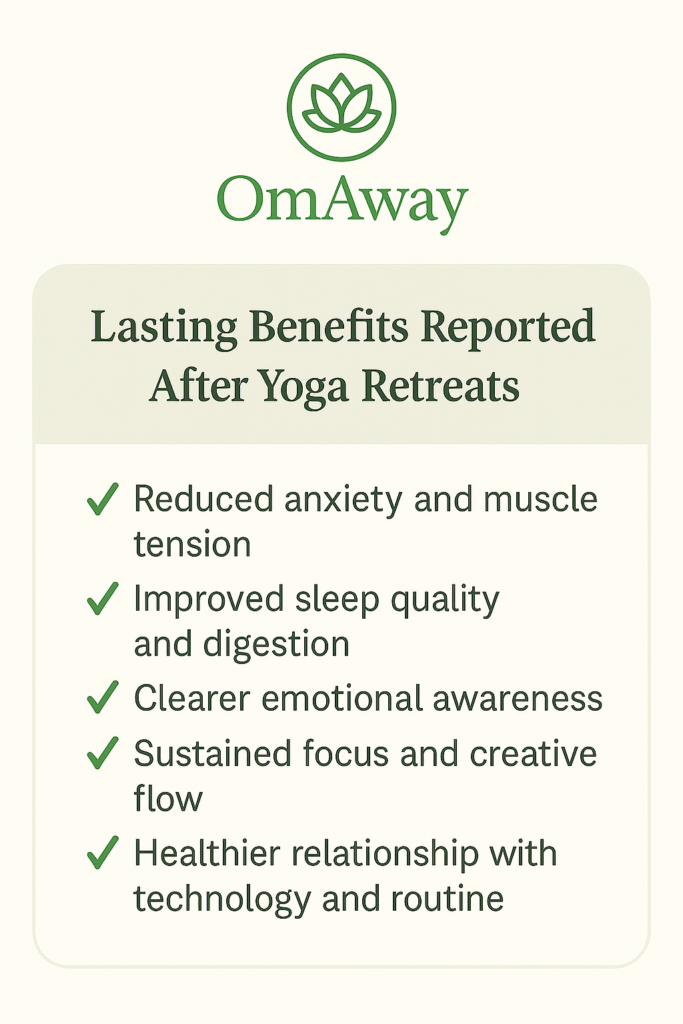
We live in a world that confuses stillness with laziness and motion with meaning.
That’s why yoga retreats are quietly becoming a modern necessity — spaces where the nervous system remembers calm and the mind remembers itself.
People sign up thinking they’ll stretch; they leave realising they’ve been stretched in ways no posture can reach.
This isn’t a holiday. It’s a recalibration of how you meet your life.
1. Your nervous system finally exhales
Most of modern life operates in fight or flight.
Even when we sit still, the body hums with background tension. Yoga retreats invite the parasympathetic system — the “rest and digest” mode — to come back online.
Within 48 hours, cortisol levels drop, sleep deepens, and the breath finds rhythm again.
The body stops surviving and starts remembering.
“After the second day, my breathing changed,” one guest said. “It felt like my chest had been locked for months.”
2. The body returns to its own timing
When you eat when hungry, sleep when tired, move when inspired — something ancient awakens.
Retreats reintroduce natural rhythm, free from alarm clocks and inboxes.
The result isn’t laziness; it’s biological coherence — a state where energy circulates without friction.
You feel lighter not because you’ve escaped life, but because life has stopped chasing you.

3. The mind quiets — and then clarifies
At first, silence feels awkward. Then it becomes gold.
The absence of noise reveals what’s been hiding under it: mental clutter, unfinished thoughts, emotions waiting to be named.
With every breath, the layers thin.
By day three, the chatter slows; by day five, thought itself feels optional.
When the brain stops defending against overstimulation, focus returns — not as effort, but as grace.
4. You experience community without performance
Retreats replace social media’s curated intimacy with the quiet solidarity of real presence.
You share a table, a mat, a sunrise — not your résumé.
For many, that’s the first time connection doesn’t require achievement.
And that reminder is healing in itself.
5. Simplicity becomes luxury again
Minimalism here isn’t aesthetic — it’s medicine.
When meals are slow, conversations real, and surroundings humble, your senses recalibrate.
What once felt boring becomes grounding.
You realize that peace isn’t a reward; it’s what remains when you stop negotiating with time.
6. The transformation lasts longer than expected
Science supports what ancient teachers already knew: a few days of deep rest recalibrate the entire system.
Studies show that participants in yoga retreats maintain higher wellbeing markers up to six weeks after returning home.
That’s because retreats teach the body and mind to self-regulate again — and self-regulation is the root of resilience.

7. You remember who you were before you got busy
A good retreat doesn’t turn you into someone else — it gives you back the person who was waiting beneath the noise.
It’s not escape; it’s reunion.
When you return, the world looks the same, but something subtle has shifted.
You move slower, see sharper, speak softer.
And that’s how you know the work has begun.
Integrating the benefits back home
The hardest part isn’t the retreat — it’s the return.
Here’s how to bridge the silence with everyday life:
- Keep morning breathwork before screens.
- Set one phone-free hour daily — discipline disguised as peace.
- Journal for 10 minutes each night, no editing, no scrolling.
- Recreate retreat meals: slow, fresh, mindful.
These small acts preserve the resonance of your experience — the difference between a retreat and a reset.
Final thought
The real benefit of a yoga retreat isn’t what happens during the week.
It’s what doesn’t: no rush, no performance, no fragmentation.
In the absence of all that, something extraordinary appears — yourself, fully present.
